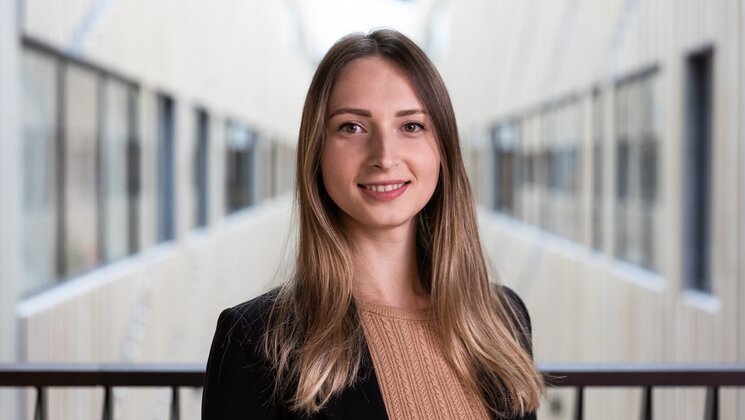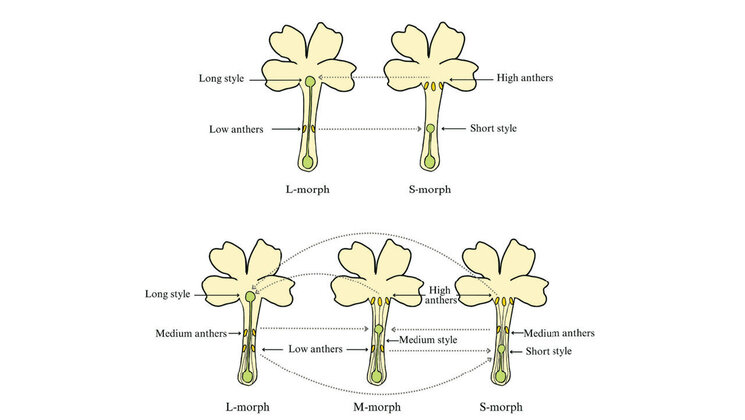-
Faculty of Arts and HumanitiesDean's Office, Faculty of Arts and HumanitiesJakobi 2, r 116-121 51005 Tartu linn, Tartu linn, Tartumaa EST0Institute of History and ArchaeologyJakobi 2 51005 Tartu linn, Tartu linn, Tartumaa EST0Institute of Estonian and General LinguisticsJakobi 2, IV korrus 51005 Tartu linn, Tartu linn, Tartumaa EST0Institute of Philosophy and SemioticsJakobi 2, III korrus, ruumid 302-337 51005 Tartu linn, Tartu linn, Tartumaa EST0Institute of Cultural ResearchÜlikooli 16 51003 Tartu linn, Tartu linn, Tartumaa EST0Institute of Foreign Languages and CulturesLossi 3 51003 Tartu linn, Tartu linn, Tartumaa EST0School of Theology and Religious StudiesÜlikooli 18 50090 Tartu linn, Tartu linn, Tartumaa EST0Viljandi Culture AcademyPosti 1 71004 Viljandi linn, Viljandimaa EST0Professors emeriti, Faculty of Arts and Humanities0Associate Professors emeriti, Faculty of Arts and Humanities0Faculty of Social SciencesDean's Office, Faculty of Social SciencesLossi 36 51003 Tartu linn, Tartu linn, Tartumaa EST0Institute of EducationJakobi 5 51005 Tartu linn, Tartu linn, Tartumaa EST0Johan Skytte Institute of Political StudiesLossi 36, ruum 301 51003 Tartu linn, Tartu linn, Tartumaa EST0School of Economics and Business AdministrationNarva mnt 18 51009 Tartu linn, Tartu linn, Tartumaa EST0Institute of PsychologyNäituse 2 50409 Tartu linn, Tartu linn, Tartumaa EST0School of LawNäituse 20 - 324 50409 Tartu linn, Tartu linn, Tartumaa EST0Institute of Social StudiesLossi 36 51003 Tartu linn, Tartu linn, Tartumaa EST0Narva CollegeRaekoja plats 2 20307 Narva linn, Ida-Virumaa EST0Pärnu CollegeRingi 35 80012 Pärnu linn, Pärnu linn, Pärnumaa EST0Professors emeriti, Faculty of Social Sciences0Associate Professors emeriti, Faculty of Social Sciences0Faculty of MedicineDean's Office, Faculty of MedicineRavila 19 50411 Tartu linn, Tartu linn, Tartumaa ESTInstitute of Biomedicine and Translational MedicineBiomeedikum, Ravila 19 50411 Tartu linn, Tartu linn, Tartumaa ESTInstitute of PharmacyNooruse 1 50411 Tartu linn, Tartu linn, Tartumaa ESTInstitute of DentistryL. Puusepa 1a 50406 Tartu linn, Tartu linn, Tartumaa ESTInstitute of Clinical MedicineL. Puusepa 8 50406 Tartu linn, Tartu linn, Tartumaa ESTInstitute of Family Medicine and Public HealthRavila 19 50411 Tartu linn, Tartu linn, Tartumaa ESTInstitute of Sport Sciences and PhysiotherapyUjula 4 51008 Tartu linn, Tartu linn, Tartumaa ESTProfessors emeriti, Faculty of Medicine0Associate Professors emeriti, Faculty of Medicine0Faculty of Science and TechnologyDean's Office, Faculty of Science and TechnologyVanemuise 46 - 208 51003 Tartu linn, Tartu linn, Tartumaa ESTInstitute of Computer ScienceNarva mnt 18 51009 Tartu linn, Tartu linn, Tartumaa ESTInstitute of GenomicsRiia 23b/2 51010 Tartu linn, Tartu linn, Tartumaa ESTEstonian Marine Institute0Institute of PhysicsInstitute of ChemistryRavila 14a 50411 Tartu linn, Tartu linn, Tartumaa EST0Institute of Mathematics and StatisticsNarva mnt 18 51009 Tartu linn, Tartu linn, Tartumaa EST0Institute of Molecular and Cell BiologyRiia 23, 23b - 134 51010 Tartu linn, Tartu linn, Tartumaa ESTTartu ObservatoryObservatooriumi 1 61602 Tõravere alevik, Nõo vald, Tartumaa EST0Institute of TechnologyNooruse 1 50411 Tartu linn, Tartu linn, Tartumaa ESTInstitute of Ecology and Earth SciencesJ. Liivi tn 2 50409 Tartu linn, Tartu linn, Tartumaa ESTProfessors emeriti, Faculty of Science and Technology0Associate Professors emeriti, Faculty of Science and Technology0Institute of BioengineeringArea of Academic SecretaryHuman Resources OfficeUppsala 6, Lossi 36 51003 Tartu linn, Tartu linn, Tartumaa EST0Area of Head of FinanceFinance Office0Area of Director of AdministrationInformation Technology Office0Administrative OfficeÜlikooli 17 (III korrus) 51005 Tartu linn, Tartu linn, Tartumaa EST0Estates Office0Marketing and Communication OfficeÜlikooli 18, ruumid 102, 104, 209, 210 50090 Tartu linn, Tartu linn, Tartumaa EST0Area of Vice Rector for DevelopmentCentre for Entrepreneurship and InnovationNarva mnt 18 51009 Tartu linn, Tartu linn, Tartumaa EST0University of Tartu Natural History Museum and Botanical GardenVanemuise 46 51003 Tartu linn, Tartu linn, Tartumaa EST0International Cooperation and Protocol Office0University of Tartu MuseumLossi 25 51003 Tartu linn, Tartu linn, Tartumaa EST0Area of RectorRector's Strategy OfficeInternal Audit OfficeArea of Vice Rector for Academic AffairsOffice of Academic Affairs0University of Tartu Youth AcademyUppsala 10 51003 Tartu linn, Tartu linn, Tartumaa EST0Student Union OfficeÜlikooli 18b 51005 Tartu linn, Tartu linn, Tartumaa EST0Centre for Learning and TeachingArea of Vice Rector for ResearchUniversity of Tartu LibraryW. Struve 1 50091 Tartu linn, Tartu linn, Tartumaa EST0Grant Office
Prestigious ERC grant helps identify the impact of land-use change on plant species and soil fertility

Associate Professor of Plant Ecology of the University of Tartu Marina Semchenko has won a prestigious grant from the European Research Council (ERC) to study the effect of land-use change on the interactions between plants and soil organisms. The evolutionary changes occurring in these interactions affect soil fertility, drought resistance and carbon sequestration capacity.
The biodiversity of the world’s ecosystems is depleting at an accelerating rate. This is why biodiversity and landscape restoration is one of the major goals of the United Nations and the European Commission for the near future. Semchenko’s research project provides essential information for improving the efficiency of the restoration work. The research will focus on grasslands in different regions of Europe and will determine how evolutionary changes in plant populations affect soil processes and their resilience to drought.
While the negative impacts of grassland fertilisation and shrub encroachment on species richness are well known, far less research has looked into genetic changes within species, which may be critical for species survival under climate change. Nor is it known how land-use-induced changes in plant populations affect the functioning and drought resilience of the entire ecosystem. These are the questions Semchenko focuses on in her research project.
In traditionally managed grasslands, microscopic fungi are highly important for plants, helping them to take up nutrients from the soil as well as retain nutrients and bind carbon in the soil. If there has been a shift in land use, plants may abandon the symbiosis with fungi. As a result, the soil may become like a sieve from which nutrients are easily washed out, while carbon is released back into the environment during drought. Semchenko’s hypothesis is that such shifts may be caused both by the use of fertilisers that are characteristic to intensive farming and by shrub encroachment in abandoned grasslands.
In the research project, grasslands of different historical background will be monitored in four areas across Europe: well-preserved and overgrown pastures in western Estonia, grasslands of different age on the island of Öland in Sweden, traditional and fertilised grassland in northern England and the world’s oldest fertiliser test field in southern England, maintained for more than 160 years. “To monitor evolutionary changes in each observation site, it is important that we know the exact history of land use, and that different management methods have been used in adjacent fields for several decades,” said Semchenko.
If evolutionary changes have occurred in plant species and their interaction with soil biota, reintroduction of only the visible plant species to the landscape may not be enough, according to Semchenko. It is also necessary to consider restoring the diversity within the species of plants and soil organisms.
“With my research I want to deliver evidence-based knowledge, which will help to make wiser choices in habitat restoration. Better understanding of how plants regulate soil biota could also be useful, for example, in crop breeding and improving soil health.
“With my research I want to deliver evidence-based knowledge, which will help to make wiser choices in habitat restoration. Better understanding of how plants regulate soil biota could also be useful, for example, in crop breeding and improving soil health,” said Semchenko.
The research project runs until September 2027 and its budget is nearly 2 million euros. Semchenko was awarded the ERC Consolidator grant that is intended to support the further development of an independent researcher. This is the eighth ERC grant awarded to University of Tartu researchers.
Illustration: Marina Semtšenko. Author of the photo: Andres Tennus
Read more similar news






